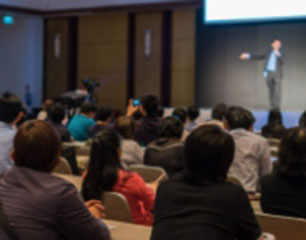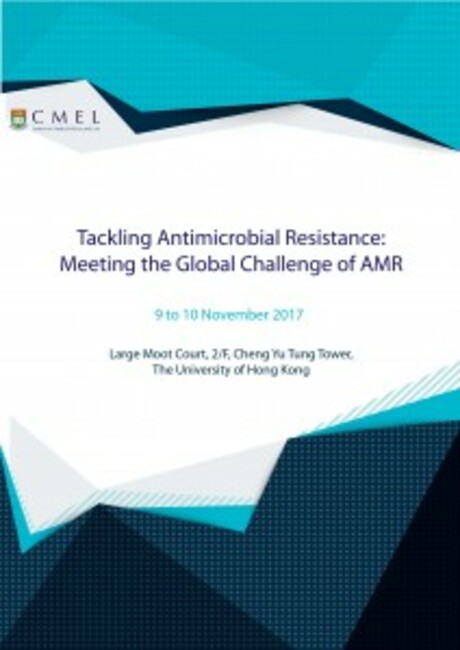Conference Report (7 Dec, 2017):
Click here
On 21 September 2016, the UN General Assembly (UNGA) convened a high-level meeting of Heads of States and national delegations to discuss an issue of increasing concern to national public health authorities around the world: the rise of antimicrobial resistance (AMR). As an indication of the urgency and magnitude of the problem, this was only the fourth time that a health topic had been raised for discussion by the General Assembly. A draft political declaration was issued in the wake of the meeting endorsing the Global Action Plan on Antimicrobial Resistance formulated by the World Health Organization in collaboration with the UN Food and Agriculture Organization and the World Organization for Animal Health.
The scale of the threat posed by AMR, and its current and potential toll in terms of deaths, human suffering and economic loss is immense. Current conservative estimates are that 700,000 people die from resistant infections each year. Of these, 200,000 people die from tuberculosis alone, as commonly-used antibiotics begin to lose to their efficacy because of AMR. Beyond the direct cost in human lives, it is estimated that more than 2 million infections a year are caused by resistant bacteria, which imposes an additional burden of US$20 billion on the US health care system alone. The human cost in countries that cannot afford such extra spending on healthcare is incalculable. Inappropriate use of antibiotics in livestock farming have accelerated the pace of the development of AMR, at once reducing the efficacy of critical antibiotics and leaking residual drugs into the environment and the food chain. It is estimated that over 70% by weight of the most important antibiotics are used on animals – and mostly for purposes other than for treating sick animals. The grim projection is that by 2050, the direct toll of human lives lost to AMR could rise to 10 million with a corresponding cumulative cost to global economic output of US$100 trillion (all data from O’Neill et al, Tackling Drug-Resistant Infections Globally: Final Report and Recommendations, 2016: The Wellcome Trust / HM Government).
Themes: This conference sets out in the first session (‘The Challenge’) to present a survey of the present global scale and impact of AMR, and the implications for the future in human, clinical and economic costs if current trends in AMR is not reversed or contained. Current international efforts in building a concerted global response towards the containment of AMR will be examined, with especially reference to efforts by international agencies such as the World Health Organization.
The conference will then address next in its second session (‘Emergent Threats – The Experience’) specific shortcomings and problem areas such as public and professional awareness; in public and environmental health (public sanitation and access to safe water); and in clinical practice in both developed and developing countries (short or inappropriate courses of antibiotics, resistant nosocomial infections in hospital settings, the problem of counterfeit antibiotics). We also look into recent developments in relevant technologies, such as in pathogen genomics.
In the third session (‘The Community Context’) the conference will address specific situations in which AMR is already a grave and urgent threat (tuberculosis, malaria, MRSA and other resistant nosocomial infections), and examine accounts of current public health responses to the challenges of AMR for these specific situations, and consider recommendations for the future management of these conditions (including the incentivization of research, the development of new antibiotics and the prioritizing of resources to public health efforts at the control of these infections). The legal and ethical implications of some public health challenges are examined. The inappropriate use of antibiotics in animal agriculture is considered, as well as on its impact on the environment and the food chain, as well as recommended responses.
In the final and fourth session (‘Making It Work’), the conference will focus on public health and national responses recommended by expert bodies such as the WHO in its global action plan on AMR, and the O’Neill Report. How much will it take to stem the tide of AMR? What will be the corresponding financial cost of failure? What should the relative distribution of burdens and responsibilities between better-off and poorer nations, and how can communities in the latter be helped?
Guest of Honour:
Professor Sophia CHAN Siu-Chee, JP, Secretary for Food and Health, The Government of HKSAR
Speakers and Panelists:
Ms Sabrina So-Kuen CHAN
Member of the Hong Kong High-Level Steering Committee on Antimicrobial Resistance, and Senior Executive Director of The Hong Kong Association of the Pharmaceutical Industry
Professor Dame Sally DAVIES
Chief Medical Officer, England
Ms Christy FEIG
Senior Vice President, Global Health Strategies
Professor Keiji FUKUDA
Director, School of Public Health, The University of Hong Kong
Professor Lawrence GOSTIN
University Professor, Georgetown University; Faculty Director of the O’Neill Institute for National and Global Health Law and the Founding O’Neill Chair in Global Health Law
Dr Christopher Kim Ming HUI
The University of Hong Kong; HKU Shenzhen
Associate Professor Li-Yang HSU
Programme Leader, AMR Programme, Saw Swee Hock School of Public Health, the National University of Singapore
Professor Ryuichi IDA
President, Shiga University, Japan; former Chairperson, International Bioethics Committee of UNESCO
Dr Timothy JINKS
Senior Business Analyst, Wellcome Trust
Mr Jeremy KNOX
Policy Lead, Drug-Resistant Infections, Wellcome Trust
Dr Leila LUHESHI
Associate Director, Clinical and Translational Research at Oxford Nanopore Technologies Ltd; formerly Head of Science, The PHG Foundation, Cambridge
Professor Ben MARAIS
Professor, The Children’s Hospital at Westmead Clinical School, Sydney
Dr Colm McGRATH
Faculty of Law, University of Cambridge
Professor SETO Wing-Hong
WHO Collaborating Centre for Infectious Disease Epidemiology and Control, School of Public Health, The University of Hong Kong
Professor Hongzhe SUN
Department of Chemistry, The University of Hong Kong
Professor Paul TURNER
Director, Cambodia-Oxford Medical Research Unit (COMRU)
Dr Howard WONG
College of Veterinary Medicine and Life Sciences, City University of Hong Kong
Professor YUEN Kwok-Yung
The University of Hong Kong; Member of the Hong Kong Steering Committee on Antimicrobial Resistance
Professor ZHANG Tong
Department of Civil Engineering, The University of Hong Kong
Registration Fee:
For Public:
Day 1 and Day 2 : HKD$200 (HKD$100 per day)
For HKU staff/students: Free of Charge
(Please prepare to submit a soft copy of your HKU staff/student Card and fill in a HKU email account for online registration)
Registration:
For Public, click HERE
For HKU staff/student, click HERE
Conference Programme:
Click here
CME Accreditation by Colleges of Hong Kong Academy of Medicine:
Click here
CPD accredited by Veterinary Surgeons Board of Hong Kong:
9.75 CPD credit points accredited by Veterinary Surgeons Board of Hong Kong under “Structured activity – S1”.
The information will be uploaded to Veterinary Surgeons Board of Hong Kong’s website (http://www.vsbhk.org.hk).
Accreditation of Continuous Education Activities by the Pharmacy Central Continuous Education Committee (PCCC):
10 CEU for both days and 6 CEU for either day will be granted to pharmacists attending the event


